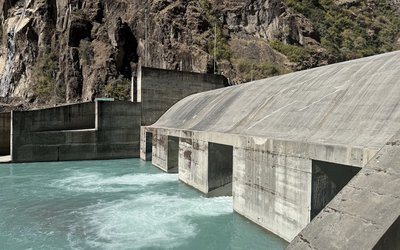
It has been said that Nepal has great expertise in getting things done at the last hour. Hearing of this, certain countries with which we have diplomatic relationship are said to have requested for scholarships to send their nationals to Nepal to study the technique and take the expertise back. For us it is no secret that this last minute custom started after 1950, following the ushering in of democracy in Nepal. It was practised during the Panchayat days, developed further after the Andolan of 2036 BS and reached perfection following the establishment of the Federal Democratic Republic of Nepal.
The 15th of Asar this year was celebrated in Nepal for the 14th time as the Day of Rice Plantation. Mud was slung by not only the locals but also tourists who regaled being allowed to participate in an activity beyond their wildest dreams! After all Asar & Shrawan are the two months in our calendar in which we Nepalis experience perhaps the maximum amount of rain.
A recent item on 16th July 2017 or 1st Shrawan in a National daily stated that the government had been able to spend only 65.5% of the earmarked budget. Of the total amount of Rs. 823.49 billion the percentage spent in the first eleven months of the financial year was just 73.4%, whilst a whopping 26.6% was spent in the last month. Another daily newspaper has put this figure a Rs. 3.6 billion per day being spent during the last three weeks of the financial year in comparison to the daily average of Rs. 0.6 billions per day during the whole of 2016-17. Last year, 44% of the budget was spent during the last month! This sort of practice, of not doing anything during the major part of the financial year and then squandering away the allotted budget for buying non essentials items or ordering work at a time when conditions are not congenial for the work to be done is what has been the norm of the civil servants. This is a known ailment or a pestering sore of Nepali society.
Spending money of building roads when the ground is soggy and unstable is becoming the norm for road construction in Nepal. Some locals of our land have even drawn attention to their plight by planting paddy saplings on such roads which are in a state of non usage! The media have been very cooperative in trying to draw the attention of the authorities but all the pleas have fallen on deaf ears or should one say blind eyes. The Gorkhapatra, a government media reported on 16th July that a section of the Mahakali Rajmarg was supposed to the metalled during Jestha and Asar. The work has not yet been completed but the asphalt of the constructed section has already come off. Another paper states that only 18 and half kilometres of the Darchula to Tinker vehicle track has been made over a period of seven years! What was the cause for the work pending - lack of initiatives or no funds in the coffers? A common practice or sarkari hakims is to sanction the first hefty payment of a construction project on which the chosen blessed contractor does not even start the work but rather disappears. Besides snippets about roads, there are similar stories regarding the building of riverside banks and bridges. Other papers give accounts of foreign travel junkets for civil servants or failing that of having grand feasts at starred hotels located in different parts of the country. As one wise crack stated, ‘Money was made round to go around’!
The point at issue is that when everyone is aware that the rainy season, when the monsoon is in full swing in our part of the world, is not the best time for doing the work. Why then is it persistently being ordered? It must be intentional to sanction such work which is intended to be substandard and is likely to be conveniently washed away. Of course all this misfortune was the havoc of Nature and so the payments have to be made. Parties concerned are happy at this turn of events.
It has been the custom in some of the erstwhile countries of the world and in the colonies that they ruled, to demarcate between the regular year and the fiscal one. Even after independence some of these new lands maintained a difference of three months between the regular and the fiscal or financial year.
Presently Austria, Brazil, China, Germany, Greece, Israel, Japan, Netherlands, Portugal, Russia, South Korea, Spain, Sweden, Switzerland and Taiwan all start their regular and financial year in January and end in December. The fact that all these countries function normally demonstrates that all financial activities done in this fashion will certainly work elsewhere too. Our present system is a hangover of the colonial days and a practice that we have copied from India. The plea is therefore made that our financial experts or pundits and the politicians get together to make both our regular and fiscal years to start from Baisakh and end in Chaitra. Only then will this demeanour of 'Asar Budgetary Sales' when our civil servants spend state money on whimsical or never-to-be-fulfilled wants end forever.
The exercise of drawing attention to the financial spending by the different governmental departments is like ‘Bhalu laayi Puran Sunaunne’. The annual naatak by our netas and sarkari hakims has become a permanent feature in the running of our government. Whilst our netas may change as they play musical chairs for ministerial posts, our civil servants are the ones who give continuity to this style of functioning in this land of ours. Lord Pashupatinath protect us common raitees!

Hemang Dixit
The author writes fiction under the name of Mani Dixit. Website: www.hdixit.org.np. Twitter: @manidixithd
- Top Heavy
- Sep 20, 2023
- Most Able?
- Sep 04, 2023
- Changing Times
- Aug 21, 2023
- Nepali Shenanigans
- Aug 03, 2023
- Budget Naataks
- Jun 29, 2023















